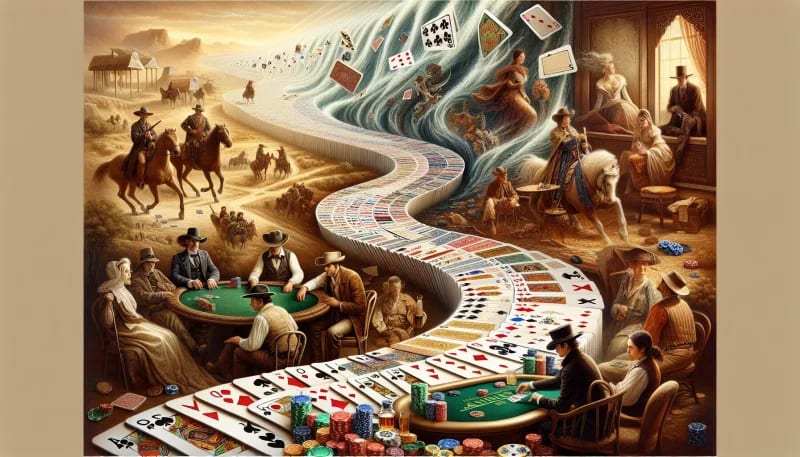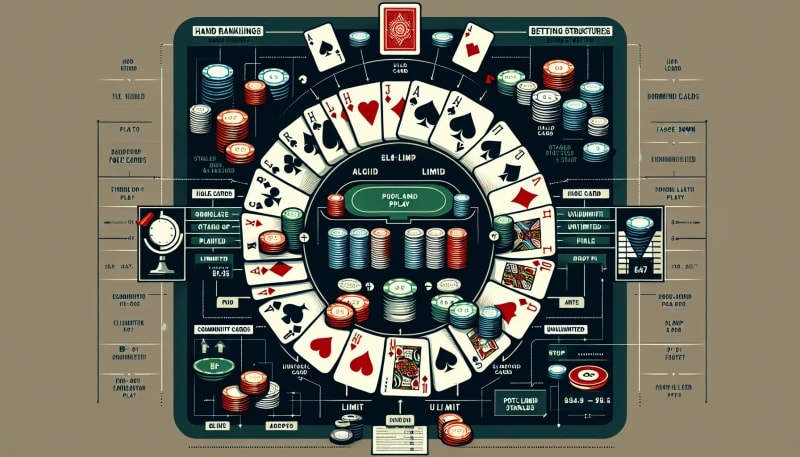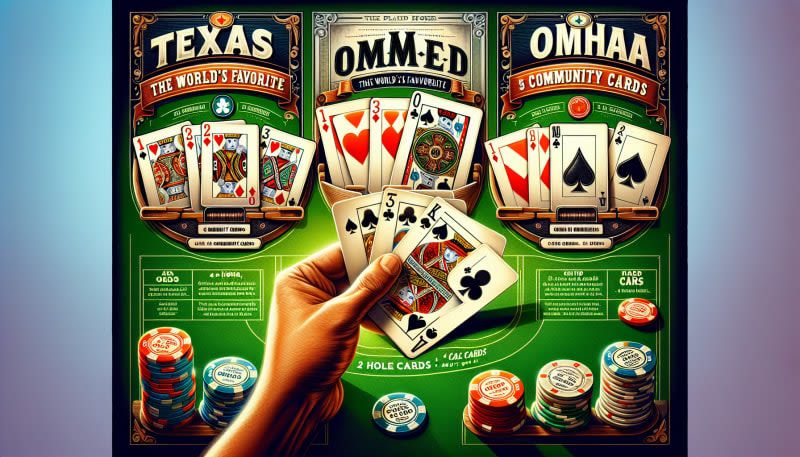How to Play Poker: A Comprehensive Guide from Basics to Strategy
History of Poker
So, we're digging into the history of poker, huh? Let's hop into our time machine and zip back a cool thousand years. Yes, you heard that right – a millennium! Did ancient warriors gamble their war loot in a heated game of Hold'em? Not quite, but it's fun to imagine.
Poker's ancestry is a complex web of games from across the old world. Upper-crust Europeans? Check. They loved a good card game. Ancient Chinese emperors? Check. They had domino cards that could've been poker's distant relatives. But who dealt the first hand? Good question!
Imagine a French gentleman, a bottle of Bordeaux on the table, playing Poque in the 17th century. That's a poker great-grandparent if ever there was one. Then, cross over to the Persian As-Nas players – a five-suite card game with betting rounds. Sound familiar?
Fast forward to the American Wild West. Saloons, spurs, and straightforward poker. It was a 20-card affair back then. Just picture it: four players, five cards each, and a whole lot of bluffing. Ah, they sure knew how to simplify things.
Now, let's talk about how poker got as American as apple pie. Somehow, this little card game wove itself into the fabric of American culture. Didn't we always have a deck of cards next to our Manifest Destiny?
- Early European games brought the concept of betting and hand rankings.
- The Ancient Chinese gave us the idea of card combinations.
- Poque and As-Nas refined the art of the bet and the bluff.
- And the Wild West? Well, that made poker the gritty, cunning game we know today, complete with a full 52-card deck.
Evolution of the Full 52-card Deck:
- First, there were domino cards.
- Then, shorter European decks.
- Next, the 20-card poker games.
- Finally, the robust beauty of 52 cards.
Let's not kid ourselves, poker today is as much about psychology and strategy as it is about the cards. But who decided 52 was the magic number? And why do we keep the jokers in the deck? To confuse us further? Perhaps.
Before I deal you into the Basic Poker Rules and Gameplay, let's reflect. Can we really trace poker's roots with precision? Maybe not. But let's raise a glass to those ancient games that gave us our beloved bluff-fest. Who knew a game could come so far and yet stay so fundamentally the same?
Basic Poker Rules and Gameplay
Transitioning from the murky origins in the "History of Poker," let's deal with the here and now: the rules that serve as the bedrock of this confounding yet captivating game.
So, what's the big fuss about these poker hands everyone obsesses over? Simple. Imagine a hierarchy from the nobility to the peasantry. At the top sits the Royal Flush, poker's equivalent to royalty: A, K, Q, J, and 10, all in matching suits. Descend the ladder and you'll encounter Straight Flushes, Four of a Kind, and so on, until you reach the commoner of the pack, the High Card - basically, the one holding the highest card wins if no one can make a pair or anything better.
Gameplay wise, it has the rhythm of a dance: Preflop, Flop, Turn, and River. These aren't just phases of reflective silence in-between the chaos of betting; they're the steps in which the plot thickens, as community cards emerge to either bolster your hand or shatter your dreams. Everyone gets their shot to bet, raise, call, or fold. Trust me, deciding whether to hold 'em or fold 'em can turn even the most stoic among us into nail-biting wrecks.
Ever heard of blinds and antes? No, they aren't design features of a poker-themed home. In this game, blinds are mandatory bets to ensure there's always something worth playing for. Antes up the ante, making everyone contribute to the pot.
Oh, and let's not forget the flavor of the game: limit, no-limit, and pot-limit. The choice boils down to how reckless or reserved you're feeling. Limit caps your betting, while no-limit is like the Wild West: bet as much as you dare. Pot-limit? It's the "just the right amount of crazy" porridge Goldilocks would choose.
With this arsenal of basic poker knowledge, holding your cards close to your chest in a game won't seem like rocket science. Applying this will be the bridge to our next segment, "Popular Poker Variants," where we traverse the landscape of poker's many splintered offspring. Let’s keep it light, shall we? After all, it's only a game... or is it?
Popular Poker Variants
After grasping the basic poker rules and gameplay, it's like opening Pandora's box, right? Suddenly, you're thrust into a world with an array of poker variants, each with its own quirks and conundrums. Let's navigate the most frequented corridors of this labyrinth, shall we?
Texas Hold'Em: Let's start with the big cheese, the head honcho—yes, you guessed it, Texas Hold'Em. This is poker's equivalent to the English language; it's everywhere. Why's it so popular? Maybe it's the simplicity. Each player gets two hole cards, and then there's a bout with five community cards—flop, turn, river. Maximum of 10 players, a feast of strategies and a dash of luck. The main event of the poker world. Is there more to life? Of course, but let's not get sidetracked.
Omaha Poker: Next up, Omaha Poker—it's like Texas Hold'Em's quirky cousin who studied abroad. Four hole cards for you, and yes, five community cards again. But here's the catch: you must use two hole cards. Makes you wonder, more cards, more fun, or just more confusion? Typically played with 2-10 players, it's a game where straights and flushes are as common as bluffing about your poker skills.
Seven-Card Stud: Before the Hold'Em hullabaloo, Seven-Card Stud was the game every Tom, Dick, and Harry played. No community cards to save you here; each player receives seven cards—some face-down, some face-up. Only the player with the sharpest memory and best strategy prevails. Is it just me, or does this game feel like a test of your secret-keeping abilities?
But how do they differ, and what does it mean for your strategy?
- Texas Hold'Em: You need a good poker face and the ability to read others like a cheap novel.
- Omaha Poker: Optimal hand selection is your bestie and bluffing? Well, it's risky business.
- Seven-Card Stud: Remembering discarded cards is key, and patience is not just a virtue; it's a necessity.
Let's admit it, regardless of the variant, you're trying to make the nuts while convincing others you might just be holding nothing but a high card bluff. Right?
Got the gist? Excellent. Buckle up, as you're segueing into the thrilling 'Basic Poker Strategy and Tips for Beginners'. They say knowledge is power, but can you ever really know enough about poker?
Basic Poker Strategy and Tips for Beginners
So, you’ve just learned about all the popular poker variants and think you're ready to conquer the world? Hold your horses, Ace, because first, you need to craft your fundamental playbook. And trust me, it’s more than just wearing sunglasses indoors.
Aggression pays off - or so they say in poker. Being aggressive with your betting can win you pots even when your cards are laughably bad. But here's the twist: you can't just bet willy-nilly. Knowing when to be aggressive is key. Late in position with a strong hand? Go ahead, make 'em sweat.
Patience is a virtue? More like a necessity in poker. You’ll fold. A lot. Get used to it. Sometimes the best move is to let go of that pretty jack-ten suited. It hurts, I know, but your chips will thank you later.
Keep a watchful eye. Stare down your opponents like they’re the last piece of cake at a birthday party. Their habits, patterns and tells – they’re all gold mines for a keen observer like yourself.
Now, let's get a little fancy with Game Theory Optimal (GTO) play. It’s like trying to solve chess while someone continuously shuffles the pieces – good luck with that. Simplified, it's playing a style that can't be exploited even if your opponents knew your strategy. Ambitious for a newbie, but hey, dream big, right?
You're not just playing the cards; you're playing your position. Late position means power. Early position? Caution. Remember: location, location, location.
Speaking of language, get your poker lingo down. If you can’t tell the difference between a 'straight' and a 'straight flush,' you’ll be as lost as a vegan in a barbecue restaurant.
And the mental game? Oh boy. Managing emotions and dealing with losses – that’s the real challenge. Poker isn't just a game; it's a dramatic telenovela where you can’t let the villains see you sweat.
- Stay cool, like the other side of the pillow.
- Expect losses; they’re just battle scars.
- Enjoy wins, but don’t let them go to your head.
Remember, it's a marathon, not a sprint. So there it is, the starter kit for your poker adventure. Armed with these tips, you might just stand a chance. Or not. But that's the fun part, isn't it?




